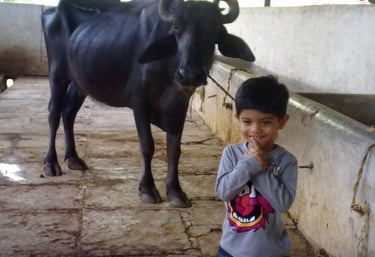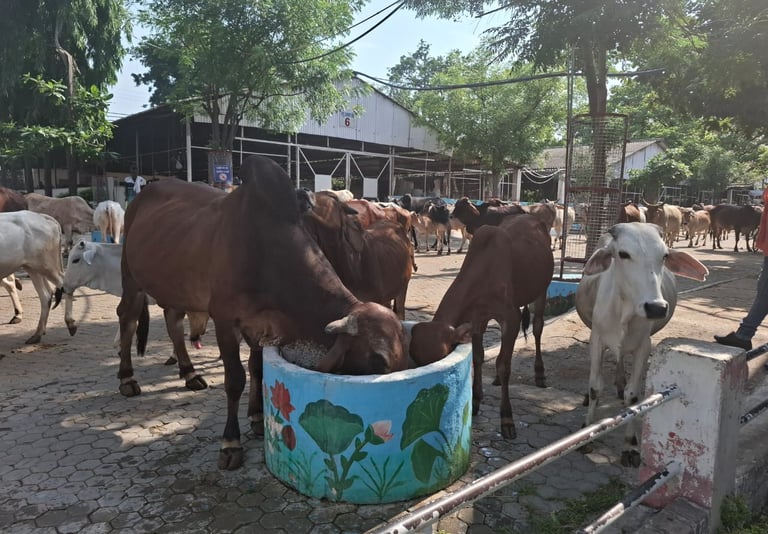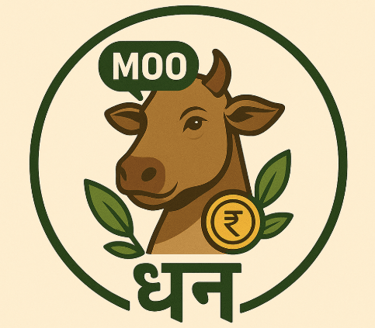My Journey
I grew up on my grandparents’ stories of clever thrift and the sacred nature of cows. In Pariyat (Jabalpur), I saw two things side by side: dairies and gaushalas that keep families and traditions going, and daily leakages - spoiled feed, messy sheds, and wasted gobar (cow dung), along with the obvious side effect of intense heat. Many gaushalas run on donations and struggle to cover basics month to month. Climate felt distant until I realized methane from our own animals was both a problem and a practical opportunity.
Moodhan started with a simple test: can environmentally sustainable changes on cow shelters cut waste and can they also reduce reliance on donations and add steady income? I listened first - sitting in courtyards, walking sheds, watching routines. That shaped Moodhan’s approach: keep it local and farmer-first, focus on habits that stick, and turn better feeding, cleaner sheds, and smarter use of gobar into measurable gains. The goal is straightforward - respect people’s time, cut waste, and convert those savings and reductions into clear, modest benefits the farmer (and gaushala) can see and count.




Moodhan's Model
Moodhan helps a cow shelter/ dairy make a few small, practical changes - use feed better, keep sheds tidier, and turn gobar (cow dung) into biogas or compost instead of letting it rot. We set these habits up with the team, check back a few times, and keep simple notes and photos (what cows eat, milk produced, where gobar goes) so progress is easy to see. An independent agency then reviews this “before/after” proof and, if satisfied, confirms that the gaushala has reduced harmful gases. That confirmation is turned into carbon credits and recorded in a public registry. We then help the gaushala sell those credits to companies that want to offset their emissions or through suitable market platforms. Moodhan’s role is to guide the habits, organize the paperwork, and connect buyers
Mission & Vision
Mission
Make simple, low-cost habits part of daily dairy work - better feed routines, cleaner sheds, and gobar turned into biogas or compost - so gaushalas run smoother, animals stay healthy, and the “good work” can be officially checked and turned into carbon credits.
Vision
Take Moodhan beyond Madhya Pradesh and Maharashtra into key dairy states - Uttar Pradesh, Rajasthan, Gujarat, Haryana, and Punjab - by partnering with gaushalas and dairy unions. We’ll keep the same simple playbook (better feed, tidier sheds, gobar to biogas/compost with a one-page log) and work towards integrating it with India’s upcoming Carbon Credit Trading Scheme (CCTS) so Moodhan sites can plug into a clear, government-backed path to credits once live. Alongside rollout, we’ll build awareness about livestock methane and advocate smart use of carbon markets with co-ops and local officials - so climate income is easy to understand, farmer-first, and here to stay.


Contact
Get in touch
Connect
guptavihaan2007@gmail.com
+91- 9920095817
© 2025. All rights reserved.
